Figs have been enjoyed for thousands of years, treasured for their sweet and unique flavor. Among the different varieties of figs available, dried figs stand out as a popular and versatile option that offers a rich taste and numerous health benefits. In this article, we will delve into the world of dried figs, exploring their history, nutritional profile, culinary uses, and potential health advantages. History of Dried Figs The history of figs traces back to ancient times, with evidence of fig cultivation dating back to as early as 9400-9200 BC. Figs were beloved by ancient civilizations such as the Egyptians, Greeks, and Romans for their sweet taste and nutritional value. The process of drying figs allowed them to be preserved for longer periods, making them a valuable commodity for trade and sustenance. Nutritional Benefits of Dried Figs Dried figs are packed with essential nutrients that contribute to overall health and well-being. These nutrient-dense fruits contain a variety of vitamins and minerals, including potassium, manganese, magnesium, and vitamin K. Figs are also a good source of dietary fiber, which supports digestive health and helps regulate blood sugar levels. In addition, dried figs are rich in antioxidants, such as polyphenols and flavonoids, which help protect the body from oxidative stress and inflammation. These antioxidants play a key role in maintaining cellular health and reducing the risk of chronic diseases. Culinary Uses of Dried Figs Dried figs are a versatile ingredient that can be used in a wide range of culinary creations. Their natural sweetness and chewy texture make them a perfect addition to both sweet and savory dishes.
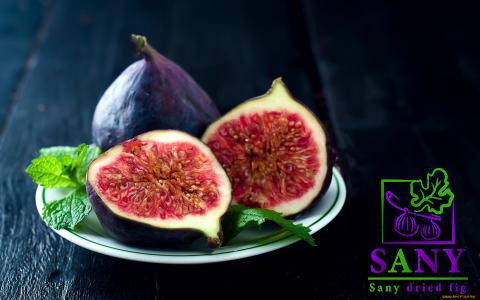
.
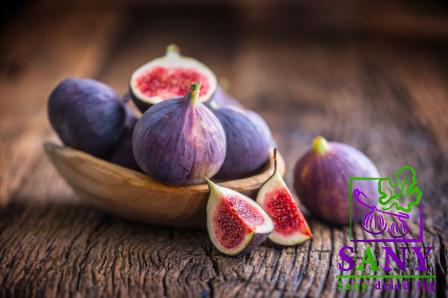 Dried figs can be enjoyed on their own as a healthy snack, or they can be incorporated into various recipes, such as salads, sauces, baked goods, and desserts. One popular way to enjoy dried figs is by stuffing them with nuts or cheese for a simple and delicious appetizer. Dried figs can also be blended into smoothies or added to granola bars for a convenient and nutritious boost. Their sweet flavor pairs well with a variety of ingredients, making them a versatile choice for enhancing the taste of many dishes. Health Benefits of Dried Figs In addition to their delicious taste, dried figs offer several health benefits that make them a valuable addition to a balanced diet. The high fiber content in dried figs promotes digestive regularity and helps prevent constipation. Fiber also helps to maintain healthy cholesterol levels and can aid in weight management by promoting feelings of fullness. Furthermore, the potassium and magnesium found in dried figs support heart health by helping to regulate blood pressure and reduce the risk of cardiovascular disease. These minerals play a crucial role in maintaining proper muscle function and nerve signaling throughout the body. Dried figs also contain prebiotics, which are beneficial for gut health as they provide fuel for the growth of healthy gut bacteria. A healthy gut microbiome has been linked to improved digestion, immune function, and mental well-being. How to Select and Store Dried Figs When choosing dried figs, look for ones that are plump, soft, and free of mold or discoloration. Avoid figs that appear overly dry or have a sour smell, as this may indicate they are past their prime. Store dried figs in a cool, dry place, such as an airtight container in the pantry, to ensure they retain their freshness and flavor.
Dried figs can be enjoyed on their own as a healthy snack, or they can be incorporated into various recipes, such as salads, sauces, baked goods, and desserts. One popular way to enjoy dried figs is by stuffing them with nuts or cheese for a simple and delicious appetizer. Dried figs can also be blended into smoothies or added to granola bars for a convenient and nutritious boost. Their sweet flavor pairs well with a variety of ingredients, making them a versatile choice for enhancing the taste of many dishes. Health Benefits of Dried Figs In addition to their delicious taste, dried figs offer several health benefits that make them a valuable addition to a balanced diet. The high fiber content in dried figs promotes digestive regularity and helps prevent constipation. Fiber also helps to maintain healthy cholesterol levels and can aid in weight management by promoting feelings of fullness. Furthermore, the potassium and magnesium found in dried figs support heart health by helping to regulate blood pressure and reduce the risk of cardiovascular disease. These minerals play a crucial role in maintaining proper muscle function and nerve signaling throughout the body. Dried figs also contain prebiotics, which are beneficial for gut health as they provide fuel for the growth of healthy gut bacteria. A healthy gut microbiome has been linked to improved digestion, immune function, and mental well-being. How to Select and Store Dried Figs When choosing dried figs, look for ones that are plump, soft, and free of mold or discoloration. Avoid figs that appear overly dry or have a sour smell, as this may indicate they are past their prime. Store dried figs in a cool, dry place, such as an airtight container in the pantry, to ensure they retain their freshness and flavor.
..
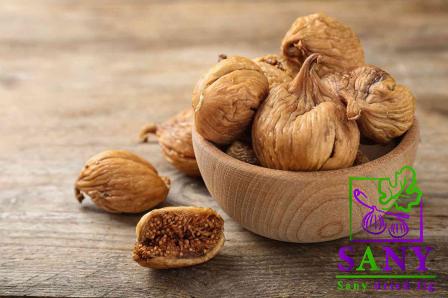 In conclusion, dried figs are a delicious and nutritious ingredient that can enhance a wide range of dishes while providing numerous health benefits. Whether enjoyed on their own as a snack or incorporated into recipes, dried figs offer a sweet and satisfying addition to any culinary creation. With their rich history, versatile uses, and abundance of nutrients, dried figs are truly a timeless fruit that deserves a place in your pantry. The versatility and health benefits of dried figs make them a must-have pantry staple for anyone looking to add flavor and nutrition to their meals. Whether you are a seasoned chef or a budding home cook, incorporating dried figs into your culinary repertoire can open up a world of delicious possibilities. One of the great things about dried figs is that they can easily elevate both sweet and savory dishes with their unique flavor profile. Their natural sweetness pairs well with a variety of other ingredients, making them a versatile choice for enhancing the taste of many recipes. For a simple and satisfying snack, try pairing dried figs with nuts or cheese for a quick and healthy pick-me-up. The combination of sweet figs and crunchy nuts or creamy cheese is sure to delight your taste buds. You can also chop dried figs and add them to a cheese board for a visually appealing and flavorful appetizer that is sure to impress your guests. Incorporating dried figs into your morning routine is a great way to start the day on a nutritious note. Add chopped figs to your breakfast oatmeal, yogurt, or smoothie bowl for a burst of sweetness and fiber that will keep you feeling full and satisfied until lunchtime. You can also mix dried figs into homemade granola or energy bars for a convenient and on-the-go snack.
In conclusion, dried figs are a delicious and nutritious ingredient that can enhance a wide range of dishes while providing numerous health benefits. Whether enjoyed on their own as a snack or incorporated into recipes, dried figs offer a sweet and satisfying addition to any culinary creation. With their rich history, versatile uses, and abundance of nutrients, dried figs are truly a timeless fruit that deserves a place in your pantry. The versatility and health benefits of dried figs make them a must-have pantry staple for anyone looking to add flavor and nutrition to their meals. Whether you are a seasoned chef or a budding home cook, incorporating dried figs into your culinary repertoire can open up a world of delicious possibilities. One of the great things about dried figs is that they can easily elevate both sweet and savory dishes with their unique flavor profile. Their natural sweetness pairs well with a variety of other ingredients, making them a versatile choice for enhancing the taste of many recipes. For a simple and satisfying snack, try pairing dried figs with nuts or cheese for a quick and healthy pick-me-up. The combination of sweet figs and crunchy nuts or creamy cheese is sure to delight your taste buds. You can also chop dried figs and add them to a cheese board for a visually appealing and flavorful appetizer that is sure to impress your guests. Incorporating dried figs into your morning routine is a great way to start the day on a nutritious note. Add chopped figs to your breakfast oatmeal, yogurt, or smoothie bowl for a burst of sweetness and fiber that will keep you feeling full and satisfied until lunchtime. You can also mix dried figs into homemade granola or energy bars for a convenient and on-the-go snack.
…
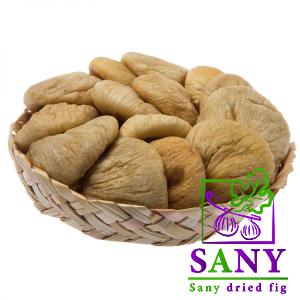 When it comes to baking, dried figs can be a delicious addition to a wide range of recipes. Try adding chopped figs to muffins, cookies, and bread for a sweet and chewy texture that will take your baked goods to the next level. Figs can also be soaked in warm water to soften them before pureeing and using as a natural sweetener in cakes, tarts, and sauces. For a refreshing and flavorful drink option, consider infusing dried figs into your beverages. You can steep dried figs in hot water to make a fragrant and soothing fig tea, or muddle them in cocktails for a unique and sophisticated flavor profile. Dried figs can also be blended into smoothies or juices for a natural sweetness that pairs well with other fruits and vegetables. In addition to their culinary uses, dried figs offer a wide range of health benefits that make them a valuable addition to a balanced diet. The fiber content in dried figs supports digestive health by promoting regularity and preventing constipation. Fiber also helps to regulate blood sugar levels and can aid in weight management by promoting feelings of fullness. The potassium and magnesium found in dried figs are essential minerals that play a key role in maintaining heart health. These minerals help to regulate blood pressure, support proper muscle function, and reduce the risk of cardiovascular disease. In addition, the antioxidants in dried figs help protect the body from oxidative stress and inflammation, which can help reduce the risk of chronic diseases. In conclusion, dried figs are a delicious and nutritious ingredient that can enhance a wide range of dishes while providing numerous health benefits. Whether enjoyed on their own as a snack or incorporated into recipes, dried figs offer a sweet and satisfying addition to any culinary creation. With their rich history, versatile uses, and abundance of nutrients, dried figs are truly a timeless fruit that deserves a place in your pantry.
When it comes to baking, dried figs can be a delicious addition to a wide range of recipes. Try adding chopped figs to muffins, cookies, and bread for a sweet and chewy texture that will take your baked goods to the next level. Figs can also be soaked in warm water to soften them before pureeing and using as a natural sweetener in cakes, tarts, and sauces. For a refreshing and flavorful drink option, consider infusing dried figs into your beverages. You can steep dried figs in hot water to make a fragrant and soothing fig tea, or muddle them in cocktails for a unique and sophisticated flavor profile. Dried figs can also be blended into smoothies or juices for a natural sweetness that pairs well with other fruits and vegetables. In addition to their culinary uses, dried figs offer a wide range of health benefits that make them a valuable addition to a balanced diet. The fiber content in dried figs supports digestive health by promoting regularity and preventing constipation. Fiber also helps to regulate blood sugar levels and can aid in weight management by promoting feelings of fullness. The potassium and magnesium found in dried figs are essential minerals that play a key role in maintaining heart health. These minerals help to regulate blood pressure, support proper muscle function, and reduce the risk of cardiovascular disease. In addition, the antioxidants in dried figs help protect the body from oxidative stress and inflammation, which can help reduce the risk of chronic diseases. In conclusion, dried figs are a delicious and nutritious ingredient that can enhance a wide range of dishes while providing numerous health benefits. Whether enjoyed on their own as a snack or incorporated into recipes, dried figs offer a sweet and satisfying addition to any culinary creation. With their rich history, versatile uses, and abundance of nutrients, dried figs are truly a timeless fruit that deserves a place in your pantry.
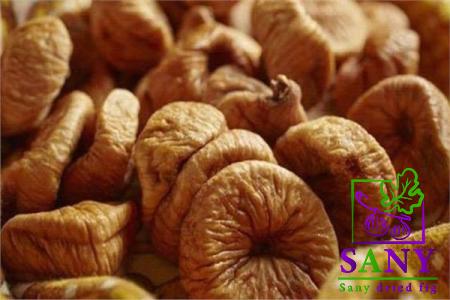

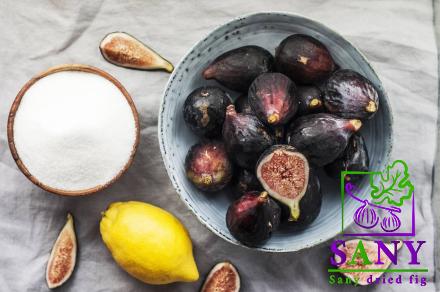
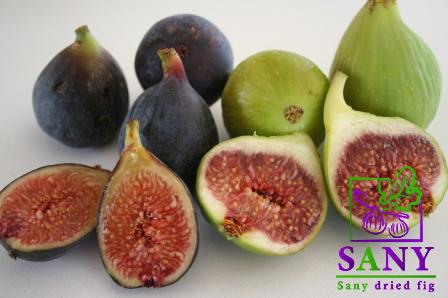

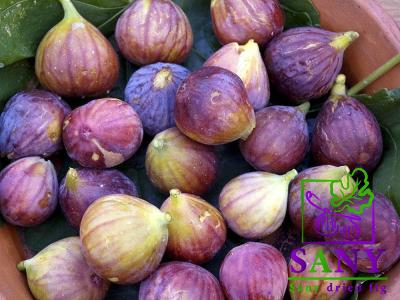
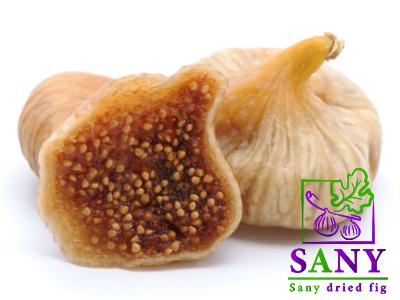
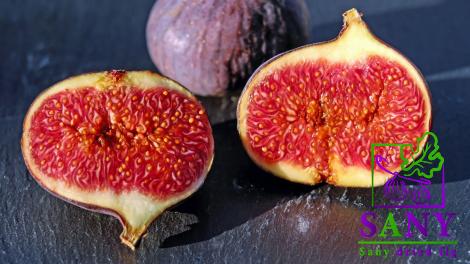
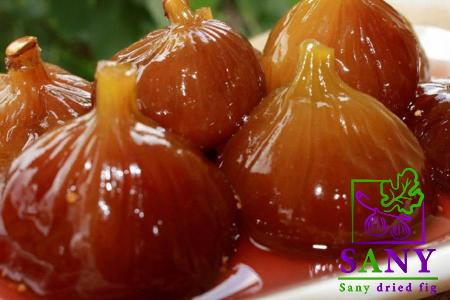
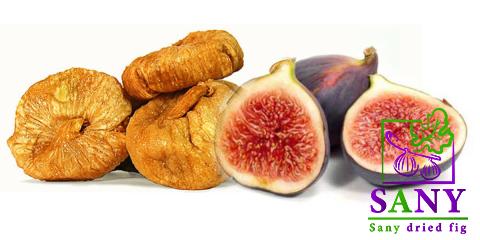
Your comment submitted.